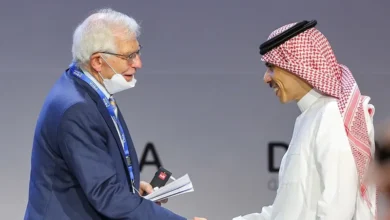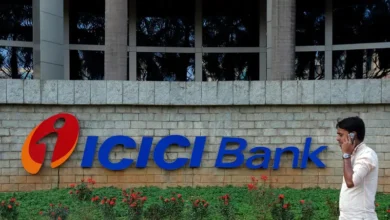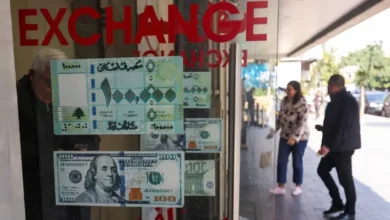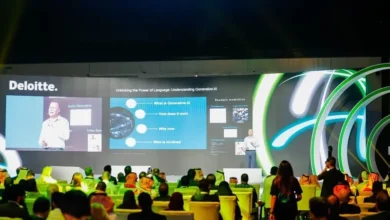From a petrol delivery startup, CAFU all set to be leader in sustainable mobility
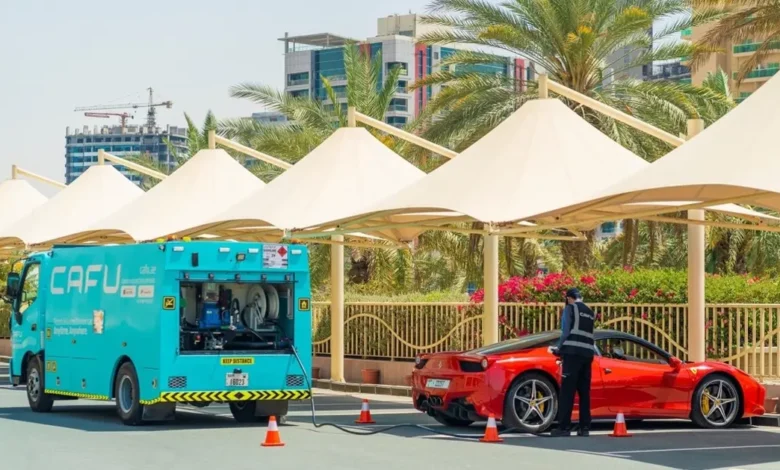
Dubai-based CAFU began its journey in 2018 as an on-demand petrol delivery startup, evolving along the way to being the leading vehicle service provider in the UAE and expanding its offerings far beyond. The super app now provides a wide range of services, including car washes, oil changes, battery replacements, tire services, insurance, minor repairs, inspections, and emergency fuel assistance.
In an interview , the Chief Business Officer at CAFU, Alaa El-Huni, points out that through this journey, the company has all the while remaining true to its “core brand promise and mission of delivering the services car owners require.”
“Most recently, we have also launched our car marketplace, ‘CAFU Cars.’ Our customers will not only be able to insure and service their cars, but will also be able to purchase their vehicle of choice on our CAFU app and website. We aim to provide our customers with an end-to-end, seamless, and smooth car journey experience while ensuring their vehicles can run the distance without running out of energy or fuel,” El-Huni explains.

CAFU’s customers include both consumers and businesses/fleets. “While individual consumers enjoy the convenience and time saved by using CAFU, fleets are experiencing real-time cost savings by utilizing our services on their premises,” he says.
It has been the use of technology that has underpinned CAFU’s commercial success in such a short time.
“As a tech enabler in the mobility space, we are committed to driving an on-demand, digital experience for our large customer base. As part of this, we continue to diversify our business into a myriad of tech-enabled solutions that serve as a more convenient future for car owners,” says El-Huni.
CAFU’s proprietary routing of artificial intelligence (AI) algorithms allows the company to determine the most efficient delivery routes, creating a dynamic supply chain model that aligns with demand. “Using emerging technologies, we are continuously developing our AI routing systems, which allow the producers on our platform to provide services to CAFU’s customers with maximum efficiency,” says the Chief Business Officer.
“We continuously invest in CAFU’s technology, resulting in our operations becoming more efficient and cost-effective than most static models and infrastructure. We operate 24 hours a day, complementing fixed infrastructure such as gas stations, chargers, and workshops.”
On-demand charging for EVs
Driven by its commitment to sustainable innovation and desire to provide the best solutions to market-specific requirements, CAFU launched Canada’s first-ever mobile EV charging solution to individuals and fleets in April this year.
This groundbreaking, connected, smart, and mobile service allows car owners to charge their electric vehicles with a simple tap of a button, expanding access to charging infrastructure.
Despite being in the BETA phase in Montreal, Canada, CAFU’s mobile EV charging service has already achieved remarkable success, according to El-Huni.
“We have received an overwhelmingly positive response from customers who appreciate and see the value in the convenience and accessibility that our services provide,” El-Huni says, adding: “We are utilizing our BETA phase to actively gather valuable feedback from our customers, which allows us to further refine and enhance our services for the Canadian market and beyond.”
According to El-Huni, the Middle East remains one of CAFU’s most important markets and the company is committed to introducing the best services in the region.
“As we expand into new markets, localization is a key aspect of our strategy. We recognize that different regions have varying challenges and requirements. As a result, we are dedicated to customizing our approach to meet the unique demands of each market,” he adds.
Ghaf Tree Project
While caring for customers and the community, CAFU has also endeavored to leverage technology for sustainable business operations. “We believe that technology is a force that can be used to address different global challenges and work towards a more sustainable future,” says El-Huni.
This concern for the environment has led CAFU to initiate the Ghaf Tree Project, the original goal of which was to plant one million ghaf trees in the UAE.

“We have spent four years working on the drone and unmanned ground vehicle technology and also the seed ecology to deliver against our objective, something that is now in sight as we start planting at scale in November this year,” El-Huni says.
“Given our experience in the development of this technology and the significant need for afforestation projects globally, we are currently looking to further our commitment to sustainability through the use of our patented Unmanned Ground Vehicle (UGV) technology to support various global projects,” he adds.
CAFU hopes to be able to offer a 360-degree planting capability from seed ecology, planting, and irrigation to biomass in the foreseeable future.
In addition, CAFU’s newly launched mobile electric vehicle (EV) charging service aims to make EV ownership more accessible and convenient for consumers and businesses who were previously unable to switch to EVs due to the charging infrastructure gap.
“Our mobile EV fast-charging service demonstrates our strong action to support global net-zero ambitions while solving the infrastructure gap that slows down EV adoption and transition, particularly with the use of renewable energy sources,” says El-Huni.
As a tech-driven company, CAFU remains firmly committed to sustainability, innovation, and clean energy as the foundation of its business, and its vision of the future of global mobility is shaped by forward-thinking enterprises and evolving consumer trends.
CAFU’s newly-launched marketplace
The company recently launched CAFU Cars, marking its expansion from car maintenance services into the app’s first car marketplace.
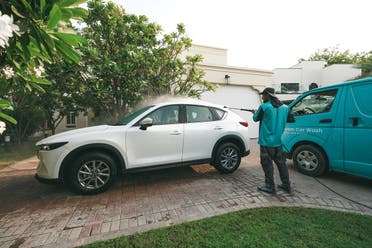
“Always listening to our customers’ demands, we found that they needed a platform that would address not only their car servicing needs, but overall vehicle experience as well. This led us naturally to CAFU Cars, a convenient platform that allows our customers to look at only one app to solve their car journey needs. As a platform for vehicle buying and selling, this allows us a new way to support our loyal customers on their car journey from start to finish,” El-Huni says.
Customers can now purchase their car through the CAFU marketplace and get it insured and serviced. What makes this marketplace stand out from other alternatives is that existing users can list their cars cost-free, as the platform acts as a liaison connecting users to buyers and sellers.
CAFU has also partnered with Autohub to assist with vehicle inspection, car photography, listing, and negotiating car sales. With a no-sale-no-pay model, customers are only required to pay a nominal fee once a car is.
“This is the first step for us in continuing to develop a comprehensive owner service that includes every step of the car ownership journey, aiding our customers in a complete 360-approach. It allows us to remain a trusted, neutral car marketplace platform, facilitating the process for customers as an intermediary,” he says.
Achieving profitability
Speaking about CAFU’s funding model, El-Huni says: “We have been bootstrapped since our inception. We consider ourselves extremely fortunate to have built a business that achieved profitability at an early stage. This success has not only allowed us to survive, but also flourish in an increasingly competitive market.
To enable business growth, CAFU is committed to fostering the right strategic partnerships with those who possess a deep understanding of the renewable energy and mobility sectors.
Exciting new projects
Regarding its future plans, the Chief Business Officer says: “As a fast-moving scale-up, we are constantly working on exciting new projects and exploring different verticals. We are constantly refining and improving our existing products, ensuring that we deliver exceptional experiences to our customers. Our agile approach allowed us to identify and seize the strongest opportunities, and we remain open to exploring new markets alongside the right partners who share our vision and values.”
For CAFU, the UAE remains one of our most important markets. In the past year, in addition to its global expansion, CAFU has also increased its fleet size by approximately 41 percent in the UAE. “We have recently expanded select services into Sharjah as the UAE remains one of our most important markets,” says El-Huni.
“People around the world, including our region, are frustrated when it comes to conventional fuel-up or car service processes and needs. As our business model is more efficient, flexible, and scalable than that of a gas station, we have been able to make significant strides in expanding our services in the UAE and Canada and are actively exploring opportunities for further expansion in other regions, including the Middle East, North America, Europe, and Asia,” he further says.
“We live in a dynamic region that is built on the premise of speed and convenience of delivery. In the GCC, governments are integrating smart mobility solutions into their urban planning efforts to alleviate issues such as traffic congestion, accidents, and air pollution,” he adds.
Environmentally conscious lifestyle choices
El-Huni points to a study by Frost & Sullivan that both the UAE and Saudi Arabia, which have experienced significant population growth over the past decade, are projected to allocate nearly $50 billion for smart city projects by 2025. Another 2023 Economist Impact report found that 98 percent of the young people they surveyed had made environmentally conscious lifestyle choices in the last year.
With bold government plans in place to work towards net-zero goals and consumers and businesses following suit, it’s quite apparent this incredibly important goal is here to stay and will feed into business strategies and initiatives at a regional and global scale. As an innovative company set to disrupt the evolving mobility landscape, CAFU remains committed to being a leader on the path to net zero and scaling its business with sustainability at its core.
“We will continue working towards enabling the energy transition by forging the right strategic partnerships with individuals and organizations that share our passion for shaping the future of sustainable mobility. We believe collaborations with both governmental and private entities who share our vision will be crucial to catapult us, to truly accelerate clean mobility solutions in all the communities we serve,” says El-Huni.
